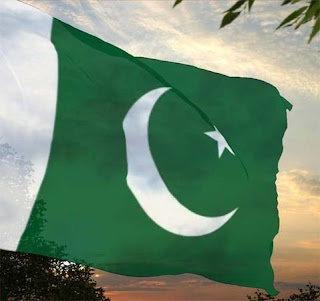
People clamour for food in Baghdad - around 25 per cent of Iraqis live below the poverty line (Photo: the Independent)
.....
Allegations of kickbacks rock key government department as 1,000 officials face arrest and Trade Minister is forced to resign
Patrick Cockburn
May 29, 2009 - Independent/UK
.....
BAGHDAD - Iraq plans to arrest 1,000 officials for corruption after a scandal which has forced the resignation of the Trade Minister and is threatening the food supply of millions of Iraqis.
Corruption at the Trade Ministry is an important issue in Iraq because the ministry is in charge of the food rationing system on which 60 per cent of Iraqis depend. Officials at the ministry, which spends billions of dollars buying rice, sugar, flour and other items, are notorious among Iraqis for importing food that is unfit for human consumption, for which they charge the state the full international price.
The scandal first erupted in April when police, entering the Trade Ministry in Baghdad to arrest 10 senior officials accused of corruption and embezzlement, were greeted with gunfire by the ministry's own guards. The shoot-out allowed several officials, including two brothers of the Trade Minister, Abdul Falah al-Sudany, time to escape out the back gate.
The political crisis over corruption has escalated after a video surfaced showing Trade Ministry officials at a party, apparently drinking alcohol, cavorting with prostitutes, and deriding the Prime Minister, Nouri al-Maliki.
The voice of the man shooting the video, widely viewed and sent from phone to phone in Baghdad, is heard shouting to the dancing girls: "You before Maliki". Guests at the party who were captured on the video are said to include one of Mr Sudany's brothers and the ministry's spokesman.
"We have the video of Trade Ministry officials hosting a party that is unethical and out of control," said Sabah al-Saadi, the chairman of the Commission for Public Integrity. "This party represents the impact of nepotism on the government and wasting of funds by senior officials' family members."
Mr Sudany, who has not been charged and denies all wrongdoing, resigned on Sunday soon after his brother and aide Sabah Mohammed, who had earlier escaped from the police, was arrested with his bodyguards when his car was stopped at Samawa, 140 miles south of Baghdad. Security and police officials said cash, gold and identity cards were found in the car.
Iraq is deemed the third most corrupt country in the world after Burma and Somalia, out of 180 countries, according to the corruption index compiled by Transparency International.
Although it is an important oil producer, many Iraqis are on the edge of starvation; 20-25 per cent of Iraq's 27 million people live below the poverty line on less than $66 (£41) a month.
Amid claims that Mr Sudany's relatives had made millions out of kickbacks from sugar purchases, Mr Maliki visited the leaderless Trade Ministry this week saying that his office would take over its functions. A committee is to take charge of Iraq's large import programme for grain and foodstuffs. "We will not keep silent about corruption after this day and we will chase all the corrupt and bring them before the judiciary," Mr Maliki said.
The Integrity Commission says it issued 387 arrest warrants in April, including warrants for 51 officials who are department heads. In addition, it has 997 arrest warrants not yet issued and Mr Maliki has told the security forces to arrest all those named.
The committee in charge of food purchases will draw its members from the Prime Minister's office, the cabinet secretariat, the corruption watchdog and the audit department. "It will buy foodstuffs in a swift and proper manner and sign agreements with the world's big companies to buy essential foodstuffs without the use of intermediaries," Mr Maliki said.
Iraqis will be sceptical about the anti-corruption campaign until they see senior officials convicted and punished. It is not only the Trade Ministry which is corrupt but the entire government system. Officials have often purchased their jobs, which they see as a way of making money through bribery or payment for awarding jobs and contracts. The last anti-corruption boss in Iraq was forced to flee the country.
And supply of tainted goods is not confined to the Trade Ministry. Refugees living in Sadr City, the great Shia slum with a population of two million in east Baghdad, were expecting food and clothing from the Ministry of Displacement and Migration but when the shipment arrived, the refugees were enraged to discover that it consisted of scratchy thin grey woollen blankets smelling of mould which were useless in the torrid heat of the Iraqi summer. There were also an assortment of children's shoes and 25 boxes of canned tuna. Locals suspect that officials had pocketed most of the money intended to help them.
The breakdown of the rationing system, started in 1995 under Saddam Hussein, threatens millions of Iraqis with malnourishment. The rations consist of items sold for a small sum of money at retail outlets on production of a ration card. They include rice (3kg a person), sugar (2kg), flour (9kg), cooking oil (1.25kg), milk for adults (250 grams), tea (200g), beans, children's milk, soap, detergents and tomato paste.
A survey by the Ministry of Planning and Development Cooperation found that 18 per cent of people had not received the full food ration for 13 months and 32 per cent had not received it for seven to 12 months. When rations do come, they are often of poor quality and Iraqis say that the tea supplied tastes disgusting.


